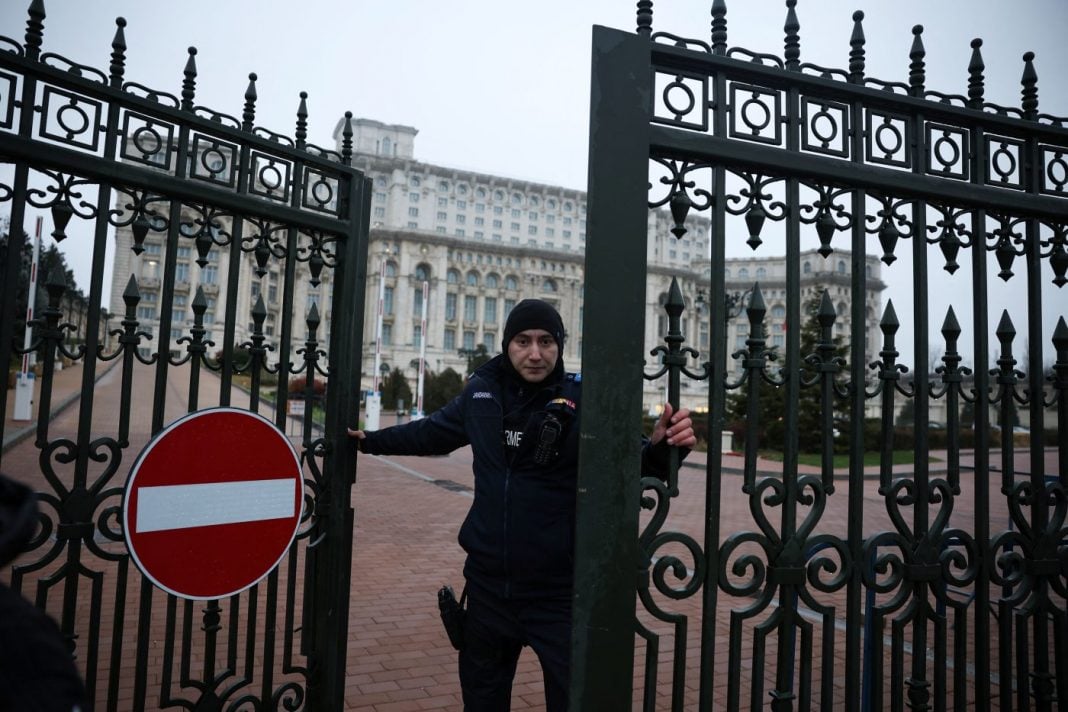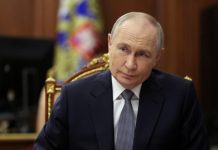By Alison Mutler, for CEPA
The unprecedented decision came just two days before the vote was due to be held and throws Romanian politics into turmoil.
Russian propagandists and the extreme nationalist at the center of the dispute, Călin Georgescu, will cry foul and accuse the authorities of hypocrisy. The decision was also attacked by the centrist, Elena Lasconi, who was to be Georgescu’s opponent in the final round.
But the country’s pro-Western Prime Minister Marcel Ciolacu said the judgment was “the only correct solution after the declassification of the documents . . . which show that the result of the Romanians’ vote was blatantly distorted as a result of Russia’s intervention.”
Romania has been shaken by Georgescu’s first-round victory on November 24 and evidence produced from declassified intelligence reports apparently showing organized interference using the Chinese-owned TikTok social media platform. Georgescu went from low single digits in opinion polls to 23% on the day of the vote.
The ruling risks further upheaval in Romania, a strategically critical NATO and European Union (EU) member that borders the Black Sea and Ukraine. But a victory by Georgescu, 62, was far more dangerous, analysts said. It risked Romania’s commitment to both organizations and weakening NATO’s eastern flank.
Ultranationalist frontrunner Georgescu benefited from a TikTok campaign that was similar to influence operations run by the Kremlin in Ukraine and Moldova, according to declassified intelligence reports.
US alarm was clear. Secretary of State Antony Blinken said: “Romanian authorities are uncovering a Russian effort — large in scale and well-funded — to influence the recent presidential election,” he said.
The files which were made public by the outgoing centrist President Klaus Iohannis stopped short of saying the Kremlin tried to swing the election in his favor but strongly suggested it.
The Constitutional Court said it had received multiple requests to annul the vote. Its statement said it “cancels the entire electoral process regarding the election of the president of Romania” and that the December 8 vote was therefore canceled.
The government will now need to draw up a timeline for fresh elections, the court said. That could take months and the process will need to start from scratch.
Adrian Zuckerman, who served as Donald Trump’s envoy from 2019 to 2021, and who is in Romania, praised the court’s decision, which came after Romanians had already started voting overseas. “I think they saved Romania from the Russians,” he said.
Zuckerman, who speaks fluent Romania, called it: “A good decision. What happened here was a coup by one state against another state.” Zuckerman has been in Romania in recent days and has been a guest on prime-time talk shows where he called for the elections to be canceled after reports of Russian interference.
But the decision was immediately condemned by politicians from the far right as well as reformists, who said it was an attempt by the widely distrusted established parties, the Social Democratic Party and the center-right National Liberal Party, to hold onto power by pulling strings in the judiciary.
Elena Lasconi, the liberal former TV journalist who was set to stand against Georgescu in the second round, accused the court of hijacking the electoral process.
“Today is the moment when the Romanian state trampled over democracy. God, the Romanian people, the truth, and the law will prevail and will punish those who are guilty of destroying our democracy,” she said immediately after the annulment.
By Alison Mutler, for CEPA
Alison Mutler is a British journalist who has been working in Romania for almost 35 years. She was the Associated Press bureau chief for 25 years and was part of a team that covered the 1989 Romanian revolution for the British TV channel ITN. For the past five years, she has worked for the Romanian-English website Universul.net and has been its director for the past three years.
Europe’s Edge is CEPA’s online journal covering critical topics on the foreign policy docket across Europe and North America. All opinions are those of the author and do not necessarily represent the position or views of the institutions they represent or the Center for European Policy Analysis.





